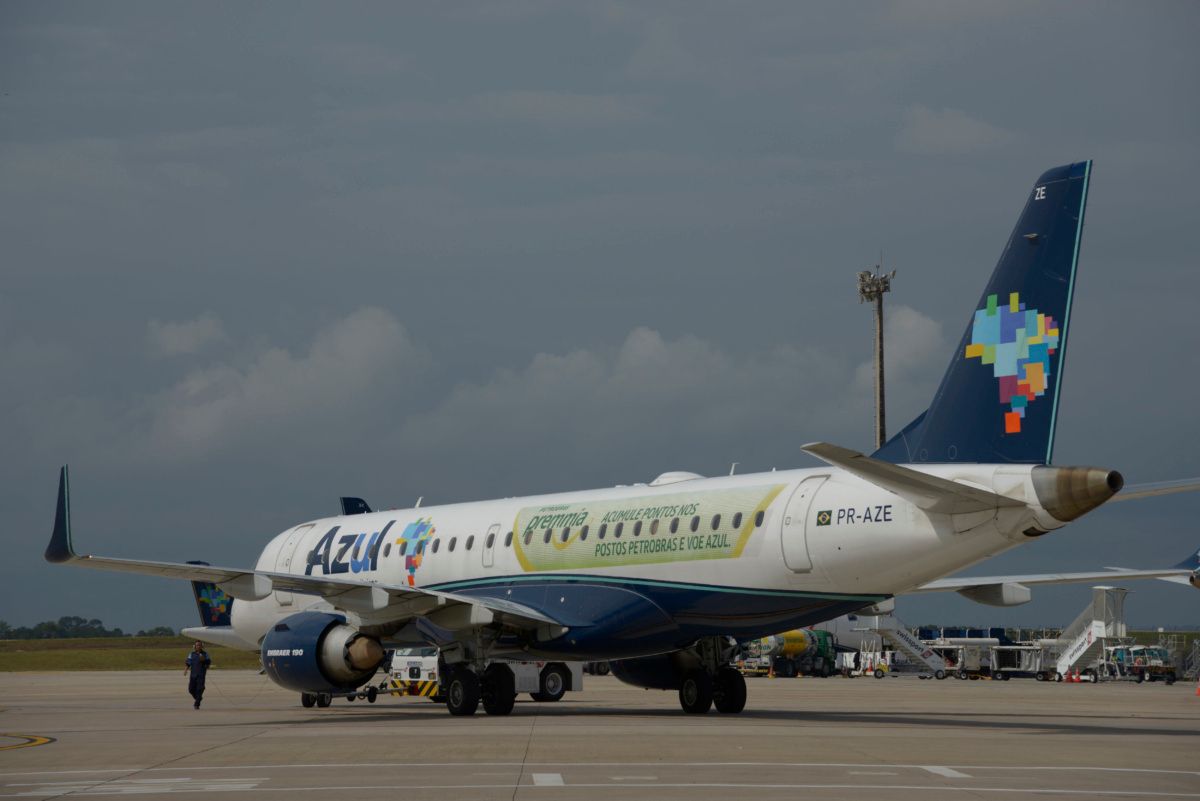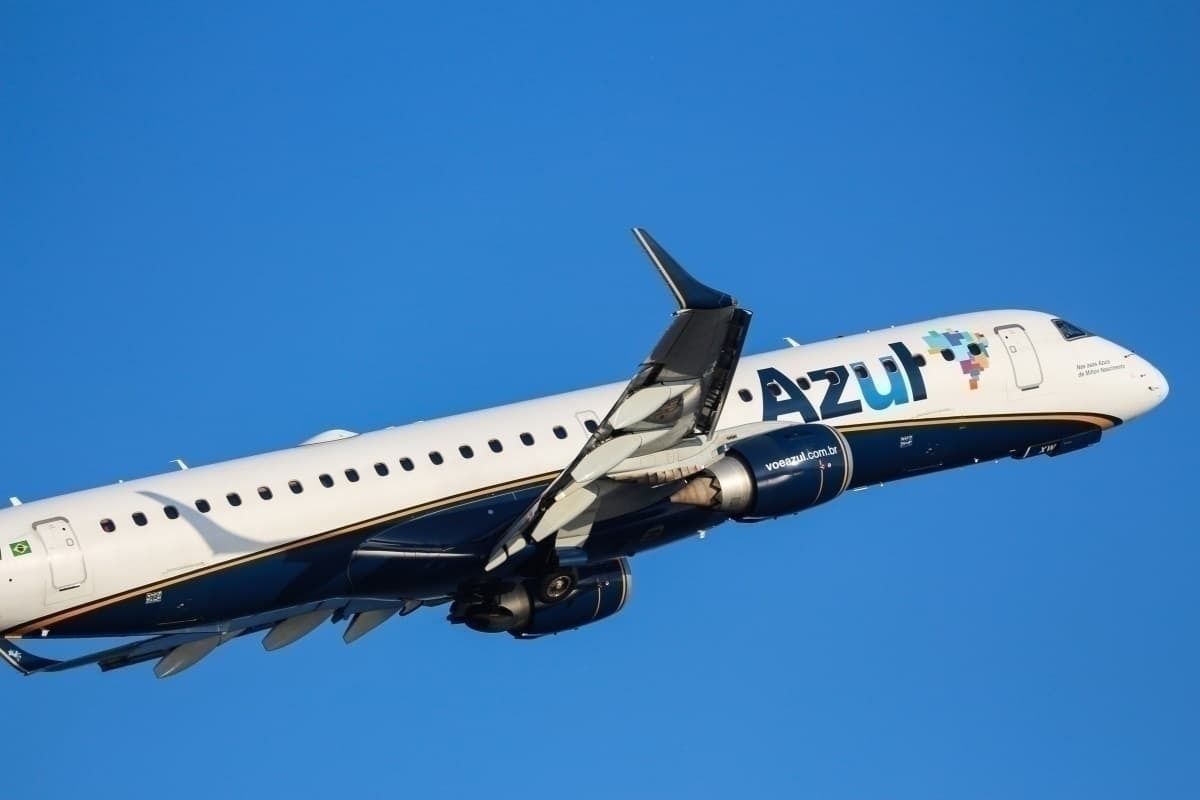The Brazilian low-cost airline Azul Linhas Aereas deferred 82 aircraft deliveries to 2024 and beyond due to the current uncertainty in travel demand. During the second quarter of 2020, Azul had a net loss of US$540 million. Nevertheless, the carrier also generated over US$1.3 billion in cash savings between March 2020 and December 2021.
A brief look at Azul’s latest aircraft orders
In its financial results for the second quarter, Azul said it reached an agreement with Embraer and Airbus to postpone 82 deliveries. The airline didn’t specify the exact type of airplanes it will defer.
Stay informed: Sign up for our daily aviation news digest.
Azul has an order for 75 E195-E2 jets with Embraer. It currently operates five of these airplanes. In the first quarter of 2020, it deferred the delivery of 59 E2 jets. We can take those into the recently announced 82 postponements. The low-cost airline also has a couple of orders with Airbus, for A321neo and A330-900 aircraft.
Before the pandemic, Azul was in the middle of its fleet transformation plan. It included the sublease of 53 Embraer E195 to LOT and Breeze Aviation Group. In 2016, the Brazilian carrier also subleased 15 airplanes to TAP Portugal.
Instead, it signed orders with Airbus and Embraer for newer, more efficient airplanes. In 2018, John Rodgerson, CEO of Azul, said the following about the E2 aircraft order,
"Our Embraer fleet has always been and will continue to be a critical part of our network and fleet strategy. With the need to replace all of our current generation E1 aircraft, 50% of those in the next five years, this order guarantees that Azul will have the newest, most fuel-efficient fleet in the industry, continually driving down unit costs.”
Then, like every other airline in the world, Azul was hit hard by coronavirus. Let’s see how the carrier is doing.
What about the second-quarter results?
During the second quarter of 2020, Azul posted a net loss of US$540 million (over 2.9 billion reais). It had an 84.7% decrease in its operating revenues going from US488 million in 2019’s second quarter to US$74.9 million this year.
Passenger demand contracted 85% in Brazil during the second quarter, and the Brazilian real depreciated 38%, pressuring Azul’s costs. Despite the challenges of this quarter, the low-cost carrier secured long-term liquidity, closing the quarter with US$559 million in cash. This amount equals 32% of the airline’s last twelve months’ revenue. Azul’s total liquidity was USD$1.2 billion as of 30 June 2020, said the airline.
Additionally, Azul agreed with lessors on new payment profiles, which provided capital relief equivalent to US$583 million. The airline reduced by 77% its operating lease payments of the last nine months of 2020.
What else has Azul done in recent months?
We think Azul has had one of the most interesting management of the current crisis across Latin America. The airline knows the incredible pressure that this pandemic will put on the air industry in Latin America. And while it has preserved as much cash as it can, it has also moved forward.
Azul recently signed a codeshare agreement with rival LATAM Brazil. Previously, it sold its 6% TAP Air Portugal stake to the Portuguese government.
Finally, one of the most significant movements Azul made was the launch of its new subsidiary Azul Conecta. With a fleet of 17 Cessna Caravan aircraft, it will try to connect up to 200 cities across Brazil with cargo-only and passenger operations.
What do you think of Azul's financial results? Let us know in the comments.



